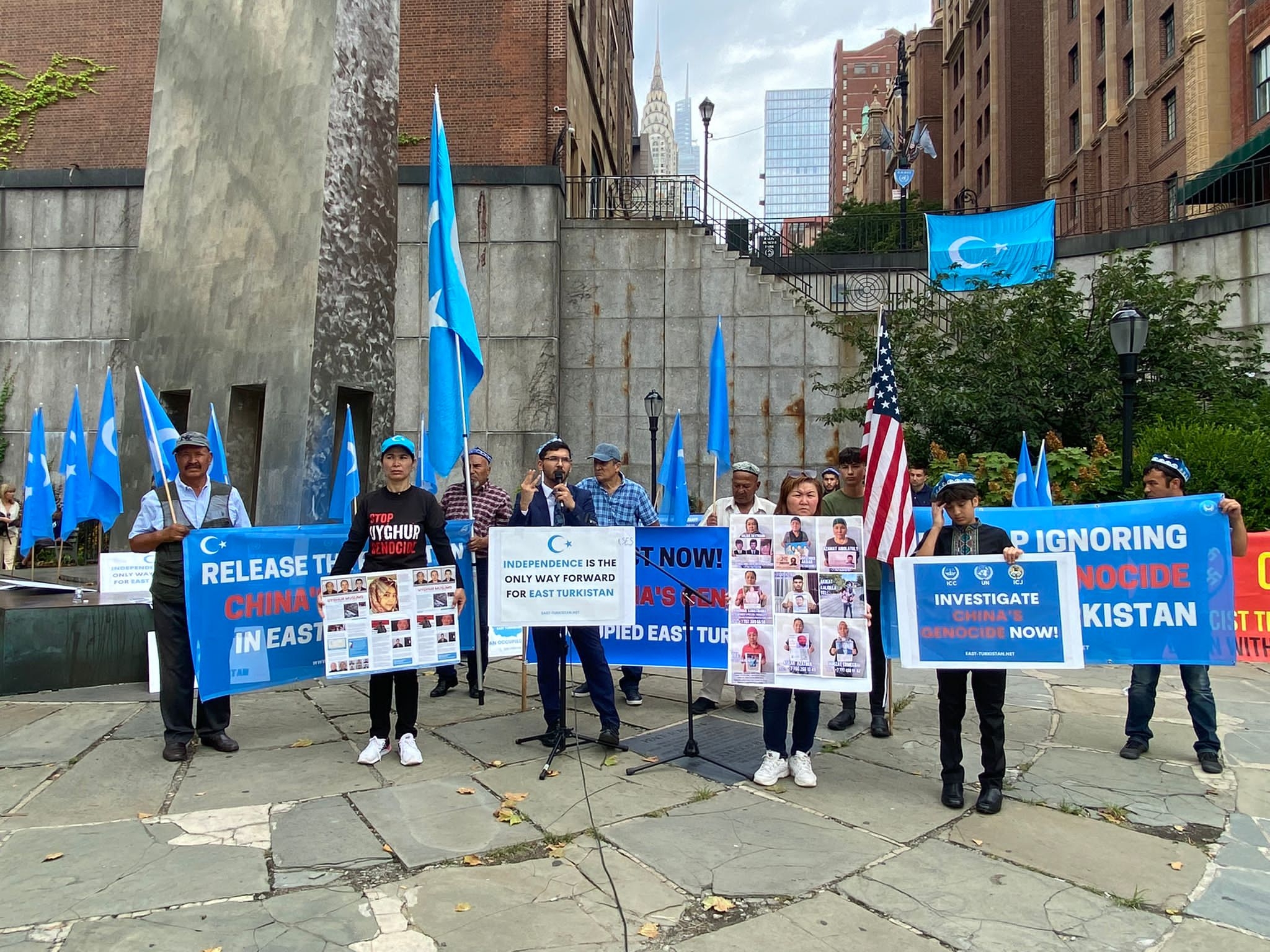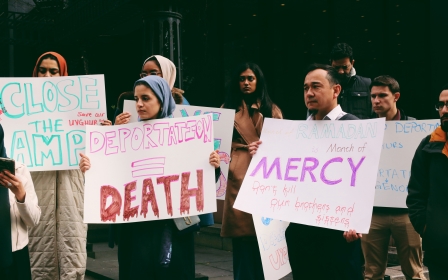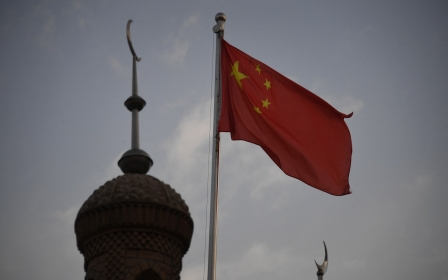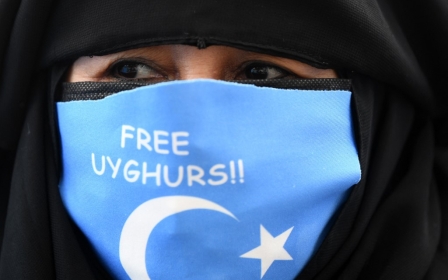UN accused of complicity in ‘genocide’ after failure to release Uyghur report

Protesters from the Uyghur community have demanded the United Nations release its report on what they call an ongoing genocide against China’s Muslim minority and accused the world body of allowing Beijing to suppress the report.
Camped outside UN headquarters in midtown Manhattan on Tuesday, a small group of protesters held aloft placards demanding the release of the report and the recognition of East Turkistan as an independent state.
“You see the Chinese government getting away with genocide. In many ways, the failure of the UN to push back against this or to even make any substantial statement shows the complicity of the UN,” Prime Minister Salih Hudayar of the East Turkistan Government in Exile told Middle East Eye.
The East Turkistan Government in Exile (ETGE) was established in Washington DC as an official government in exile in 2004 and is pushing for an independent state in China’s northwest, what is known officially as the Xinjiang Uyghur Autonomous Region.
Hudayar said the name is ironic given that the "autonomy" they experience is “colonisation, assimilation and genocide”.
Members of the ETGE represent over a dozen different organisations from among the Uyghur and East Turkistani diaspora, according to their website.
The ETGE and the territory it claims are not recognised by the United States, but Washington has repeatedly criticised China’s treatment of the Uyghurs and other ethnic minorities - even going so far as to label it a genocide in 2021.
Reports suggest that around one million Uyghurs have been detained over the past few years, in what the Chinese government has called “re-education camps” which Beijing argues are a necessary measure against “terrorism”.
Uyghurs showing adherence to Islamic principles - including praying; fasting; abstaining from alcohol; growing beards; or wearing Islamic clothing - have been detained by authorities and forced to comply with Communist Party principles.
The Chinese government dismisses the allegations as “The most preposterous lie of the century, an outrageous insult and affront to the Chinese people, and a gross breach of international law and basic norms governing international relations.”
United Nations High Commissioner for Human Rights Michelle Bachelet visited China in May this year, but so far no report has been released on the situation in Xinjiang, where 12 million Uyghurs reside.
Hudayar says the UN has given assurances the report would be released before the end of Bachelet’s term, which ends on 31 August 2022. The ETGE was pushing the UN for a full-scale investigation that never materialised.
When asked about a date for the release of the report, the Office of the United Nations Commissioner for Human Rights told Middle East Eye: "Unfortunately, while we don't have a firm date for the report's launch as of yet, the High Commissioner has committed to releasing it before her term finishes on 31 August."
Last week, Reuters reported that the Chinese government was putting pressure on the UN to prevent the publishing of the report.
“For the past several years, the United Nations has been very silent or completely silent, ignoring China’s ongoing genocide,” Hudayar told MEE, adding that not a single resolution on the plight of the Uyghurs has been presented at the UN.
“It is something that needs to happen urgently,” Hudayar argues, “even if it is vetoed by China, the fact that it is brought to the (UN) Security Council agenda is meaningful.”
The ETGE says that for various “political reasons”, even the US - as well as other countries - is unwilling to put its weight behind the issue at the UN.
Hudayar was born in western China and fled as a political refugee with his family when he was seven years old, settling in the state of Oklahoma. As an adult, he undertook a brief career with the US military. The last time he had any contact with relatives in Xinjiang was in 2017.
He helped found the East Turkistan National Awakening Movement, which lobbied the US government to act on Uyghur issues. The advocacy group claims their lobbying led to the passing of the Uyghur Human Rights Policy Act in 2020, during Donald Trump’s presidency.
But none of this is enough, according to Hudayar.
“This is the reality of everything that China is doing as defined under the UN Genocide Convention,” Hudayar says. “At this rate, if things continue this way, there will be no way for our people to even exist in the coming decades.”
Middle East Eye propose une couverture et une analyse indépendantes et incomparables du Moyen-Orient, de l’Afrique du Nord et d’autres régions du monde. Pour en savoir plus sur la reprise de ce contenu et les frais qui s’appliquent, veuillez remplir ce formulaire [en anglais]. Pour en savoir plus sur MEE, cliquez ici [en anglais].




